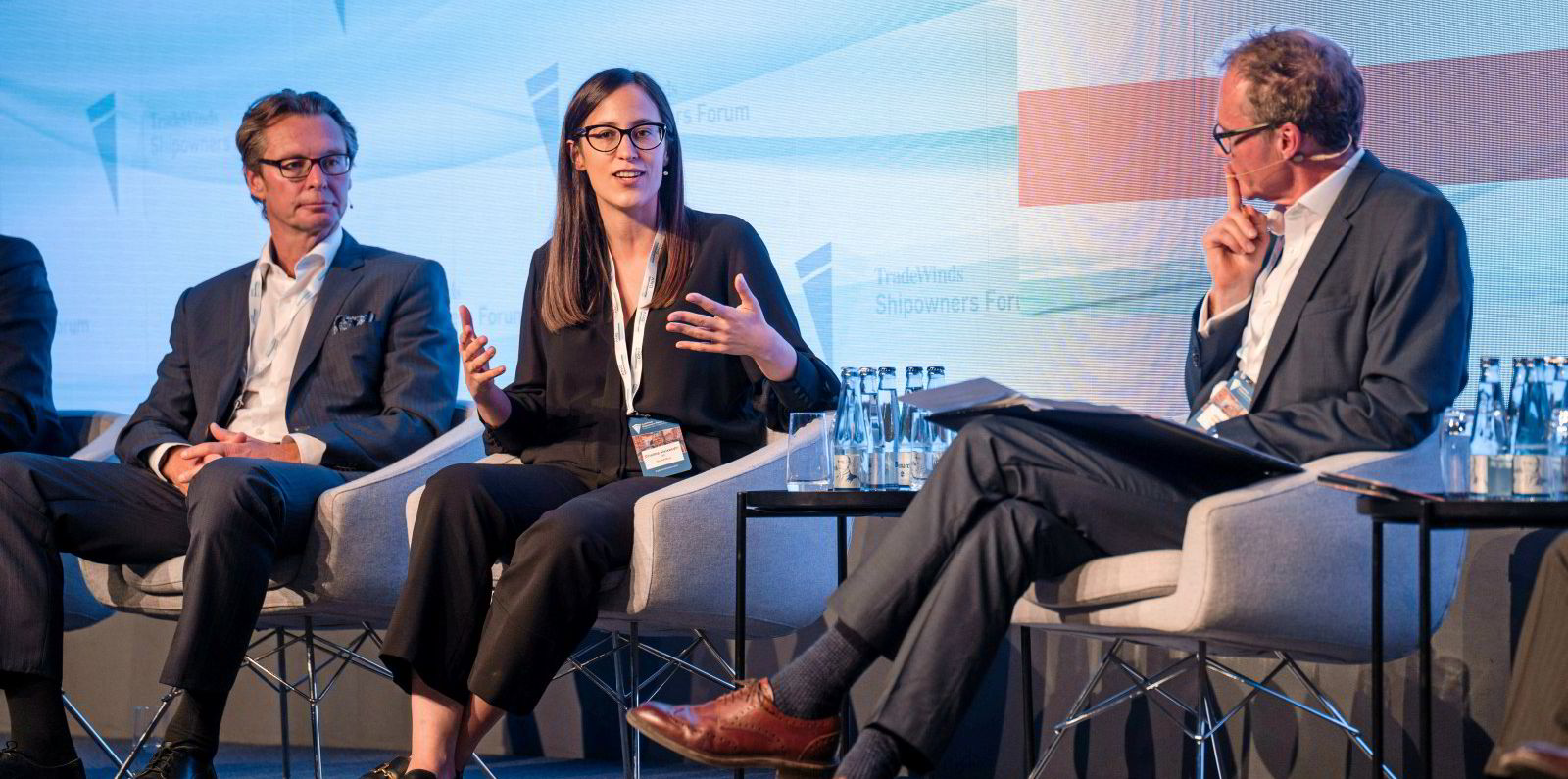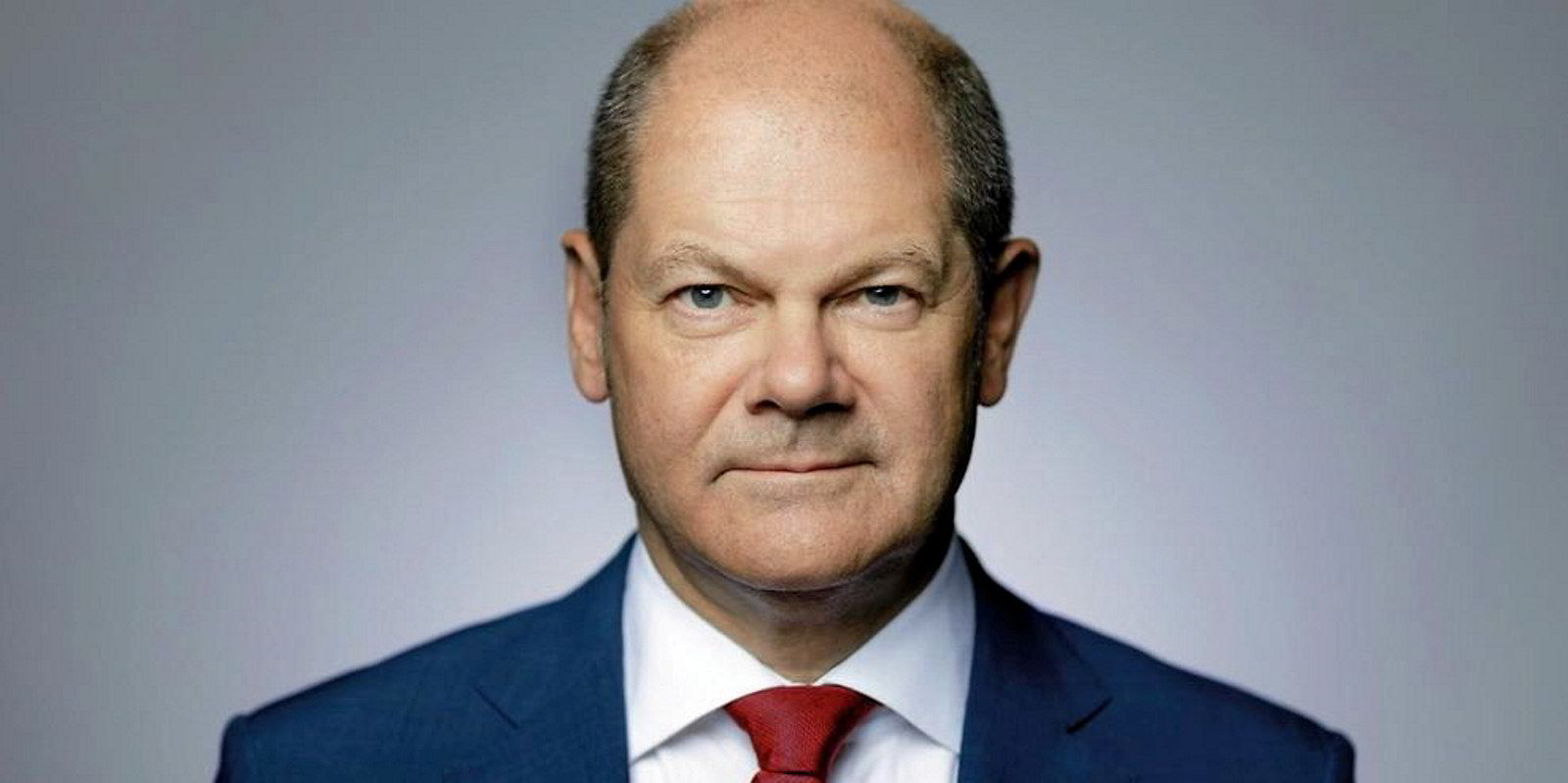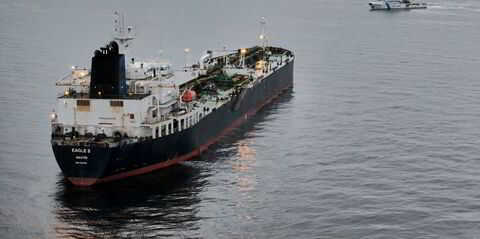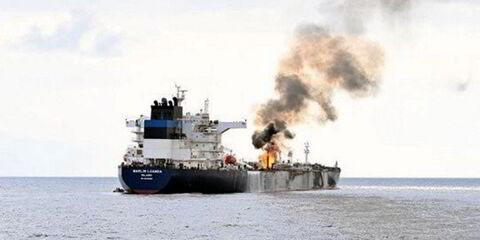To judge by the mood music today, a casual observer could easily think shipping is well on the road to decarbonisation. At the huge SMM maritime technology expo in Hamburg last week, companies large and small promoted new equipment and software to speed emission reductions, and shipowners embraced the agenda.
And next week in New York, the Global Maritime Forum will probably beat the drum to meet the ambition for “net zero”.
There are facts that back up the optimism.
Investment in ships with dual-fuel engines is accelerating and retrofits for fuel efficiency are running at top speed. In the first half of this year, 61% of all new ship orders have been alternative fuel-capable, according to data from Clarksons Research. Energy-saving technologies have been fitted to 5,300 ships, or nearly 24% of tonnage.
Further, most industry representatives and lobby groups are flying the flag for “net zero” carbon emissions by 2050, compared with the current benchmark agreed by member nations of the International Maritime Organization of a 50% cut from the 2008 level. And the IMO itself is expected to live up to its pledge of “greater ambition” next year.
So, all is good with the world? Not quite yet.
You don’t have to dig far into the data to discover today’s inconvenient truth. Far from falling, carbon emissions are rising, and are set to continue to rise for much of this decade.
After touching a low in 2020, gross carbon emissions from shipping rose last year and are on track to rise again this year. And in analysis discussed by MAN Energy Solutions, so-called well-to-wake emissions are on track to climb 10% this decade before cumulative measures give momentum to cuts.
Shipping’s success is at the root of this conundrum. Over the last decade, much of the reduction had little to do with conscious efforts to reduce pollution. It was driven by the vested self-interest in slowing the fleet from the gas-guzzling top speeds at the height of the market before the global financial crisis, as a leading German shipowner again asserted to TradeWinds in private last week.
And the upswing in emissions this decade is not for lack of desire or talk about how to effect decarbonisation. It is driven by the industry’s growing fleet being built to serve the continued expansion in seaborne trade in food, energy and finished goods.
The net result is sobering. Few believe that “net zero” will be attained by shipping by 2050. Speakers at the TradeWinds Shipowners Forum at SMM broadly agreed that while such a stretch target is a powerful incentive for action, it is a target unlikely to be hit for a decade or two after 2050 at best.
In such circumstances, the accumulated overshoot of the CO2 budget for shipping is likely to reach 25 gigatonnes by 2050, according to Anders Kryger of MAN Energy Solutions.
Stripping out the emotion
However, such a forecast should not be greeted with dismay but accepted as a warning that more must be done.
The action and investment already underway will, over time, make a significant impact. The arrival of new fuel technologies in commercial platforms — such as ammonia dual-fuel engines and low and no-carbon fuel bunker networks on green corridors — will add to the momentum.
The key, however, will be carbon pricing, most likely in a rainbow of varieties in different territories. Participants at next week’s Global Maritime Forum — held to coincide with the 77th general assembly of the United Nations — should use their platform to lobby for faster and coordinated action to price CO2 off the water.
The industry has reached a point of sophistication where emotion needs to be stripped from the decarbonisation debate. The world in general, and shipping in particular, have moved a long way from the dark days two decades ago when carbon-intensive industries were dominated by powerful voices of climate change denial that drowned out those calling for a science-based approach.
It is not pessimistic to highlight the likelihood of a wide overshoot of carbon reduction targets. Rather, it is realistic. And that should be welcomed.
With a grounded, realistic approach, the justifiable optimism seen in the recent acceleration in carbon reduction and efficiency improvements can be put in context: much is being done, but much, much more must be done to clean up shipping.




